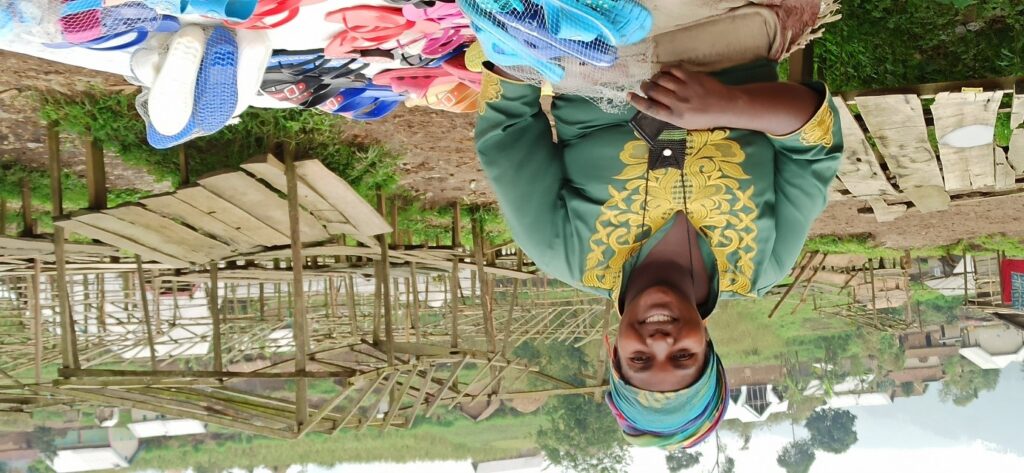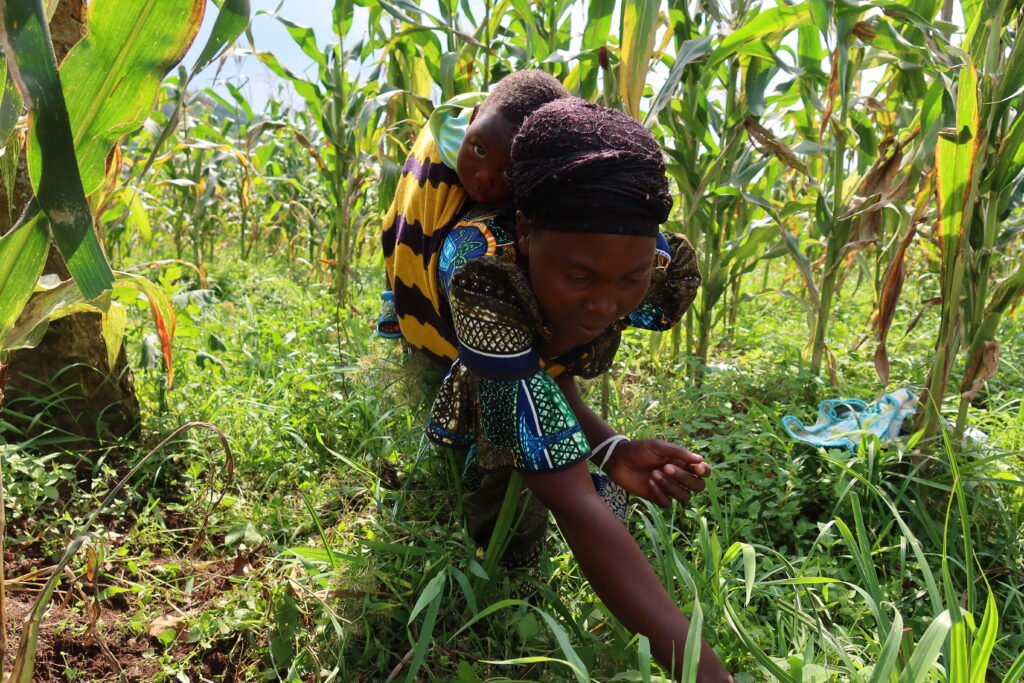Masengesho Munyakazi Divine is 33 years old and lives with her husband and three children in the village of Kirumbu in the Democratic Republic of Congo. She is one of 3,000 participants in a project to improve the nutritional situation. “In the past, we ate very unbalanced food and the yield from agriculture was poor. Therefore, I tried to buy cheap vegetables for my family. But this poor diet affected my family’s health, so we had to spend a large part of our income on medical and health care,” she explains.

Breaking the vicious circle of war and hunger
In January 2020, Masengesho was selected for the project along with 3,000 other smallholder farmers from the region. The goal is to make the population more resilient and improve their nutritional situation. Over the past 20 years, there have been recurring conflicts in the region that have worsened the hunger situation. As a result, many people within the Democratic Republic of Congo are fleeing to other parts of the country. But many regions cannot support this population increase – there is already extreme poverty and weak state institutions. Particularly affected by this crisis situation are women, who rarely earn their own income due to a disadvantaged position and can hardly make decisions within the communities. All these factors ensure the absence of sustainable progress in the region.

Masengesho participated in training on nutrition and cultivation techniques and is part of a producer group that supports participants with materials and seeds. This has enabled her to improve the quality of her vegetables while increasing yields. Part of the project is based on cooperation with local organizations and groups of farmers and families in rural areas. There are measures to strengthen community structures, repair water and sanitation infrastructure and increase agricultural production. In this way, the communities are strengthened and are better able to cope with future challenges.
“The group has improved social cohesion and teamwork in my community,” she says. “Apart from the agricultural activities we do together, we have set up a contribution system, so members are enabled to save money. Many of them are women. They can invest this money, for example, in their own small business. In this way, we strengthen the financial independence of women,” Masenheso proudly reports.
Strong women and strong families
The project supports women’s active participation in committees and promotes voice within the community and family through training. The goal is to give women more influence over decisions and control over their livelihoods.

Masengesho Munyakazi Divine is now able to provide for her family’s livelihood. She used the profits from farming to start a small business selling plastic shoes. “With the profit from these activities I was able to buy two cows, now my family has enough to eat and I sell the surplus of the harvest.”
WWH, together with Alliance2015 member Concern Worldwide, is improving resilience in agricultural zones of Masisi, Nord Kivu, by distributing seeds and tools to thousands of households and providing training on storage logistics, processing and marketing.


